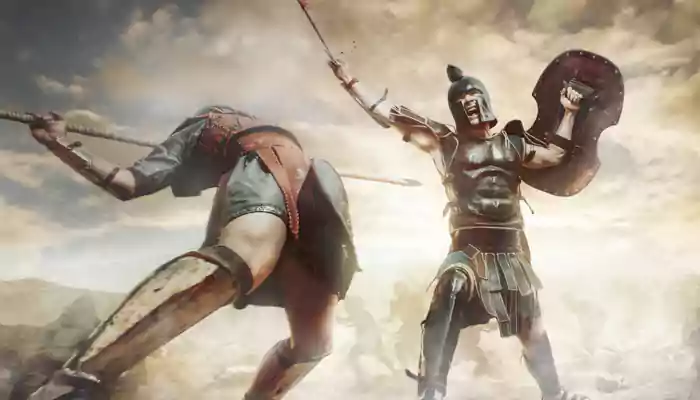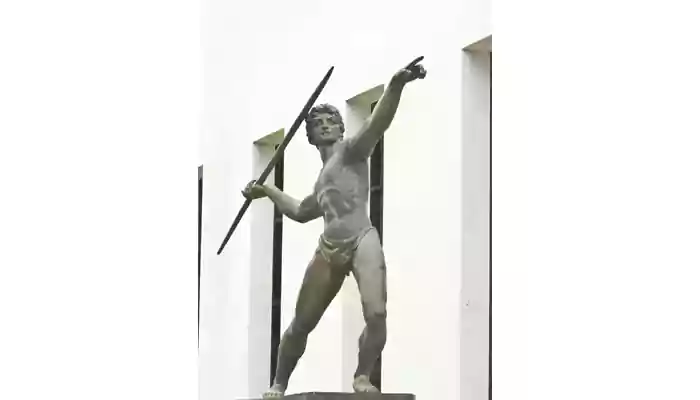Exciting Sports of ancient Greece You Should Know About
Ancient athletes participated in sports as a display of physical prowess and sports was a much welcomed entertainment in ancient Greece.
- Sanjukta
- 30 October, 2023
- 2 mins ago

Exciting Sports of ancient Greece You Should Know About
Ancient athletes participated in sports as a display of physical prowess and sports was a much welcomed entertainment in ancient Greece.
Ancient Greece, often regarded as the cradle of Western civilization, gave birth to numerous innovations, including democracy, philosophy, and mathematics. Among its most celebrated creations were the Olympic Games, a true testament to the Greeks' passion for physical excellence.
Ancient Greek considered sports to be enjoyed by everyone. Greeks staged the first ever Olympic Games in about 776 BC where athletes with great physical prowess, endurance and self- discipline would participate. They were the first to craft sports as entertainment with a stadium full of spectators. Naturally, sports was a main recreation for spectators and a means for well-to-do male athletes to show off their talents.
The ancient Greeks are credited with inventing some of the world's earliest athletic events, with a history dating back over two millennia. These ancient sports not only tested the physical prowess of athletes but also served as a means to promote unity among city-states and to cultivate moral virtues.
Ancient Greek athletes, or "athlētai," underwent rigorous training that encompassed not only physical but also moral development. This training was known as "gymnasia," which originated from the word "gymnós," meaning "naked." Athletes trained in the nude to emphasize the purity of their pursuit. The "palaistra" was a training facility dedicated to combat sports such as wrestling and pankration.
Prominent trainers like Ariston and Herodicus played a pivotal role in molding athletes. Training involved not only physical conditioning but also the development of character. Athletes were expected to exhibit virtues such as discipline, self-control, and humility.
Curious to know what kind of sports ancient Greeks indulged in? We have a list for you.
Panhellenic Games
Not really a sports, but a competition, Panhellenic Games were three other major sports comeptitions in ancient Greece: the Pythian Games, held at Delphi; the Isthmian Games, held at the Isthmus of Corinth; and the Nemean Games, near Nemea. Each of these games had its own set of events and traditions, attracting athletes from different regions of Greece.
Pankration
Pankration was a demanding and brutal sport, combining elements of boxing and wrestling. Competitors were allowed to use nearly any form of attack, except biting and eye-gouging. Victory came by making the opponent submit or concede defeat.
Pentathlon
Much like a triathlon of the today, the pentathlon was a multi-event competition that tested an athlete's all-around abilities. This sports comprised not one or two or even three but five events: long jump, discus throw, foot race, javelin throw, and wrestling. Winning the pentathlon was highly prestigious, as it demonstrated a competitor's versatility.
Chariot Racing
Chariot racing was a popular and thrilling sport in ancient Greece. Competitors drove chariots, typically drawn by horses, in races around a track. Different forms of chariot racing existed, including the single-horse race, two-horse race, mule race, and four-horse race. Chariot racers were often celebrated as local heroes.
Long-Distance Foot Races
Long-distance running was a fundamental athletic pursuit in ancient Greece. The stadion was a sprinting event covering a single length of the stadium, which was approximately 200 meters. There were also longer foot races, such as the diaulos (twice the length of the stadion) and the dolichos (ranging from 7 to 24 laps of the stadium).
Discus and Javelin Throwing
Throwing the discus and javelin were popular events in ancient Greek athletics. You can see paintings and sculptures depicting this ancient sports. These events required a combination of strength, technique, and skill, with the objective being to achieve the greatest distance or accuracy.
Wrestling
Wrestling was a significant combat sport in ancient Greece. Competitors grappled with one another, aiming to throw their opponent to the ground or force them out of a designated area. Victory was often determined by a pinned or submitted opponent.

Horse Racing
Horse racing was another prominent sport in ancient Greece, typically involving races on horseback. The sport had variations, such as the tethrippon (four-horse chariot race) and the keles (horseback race).










